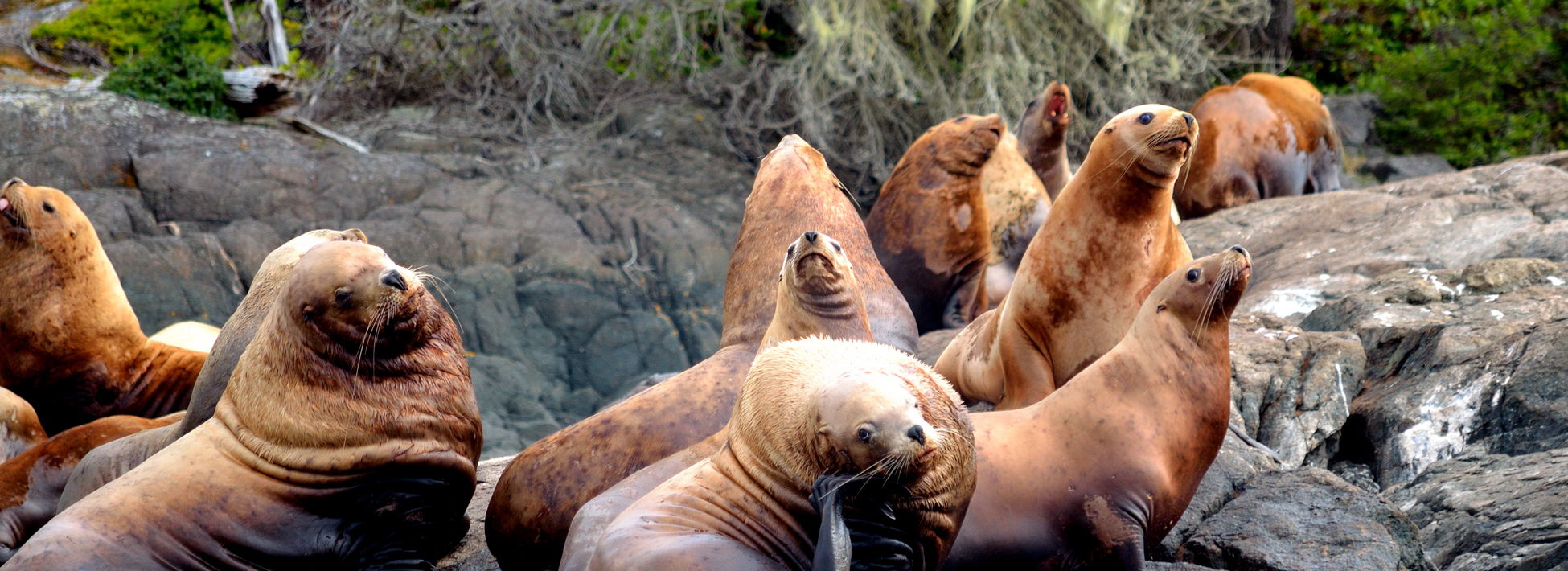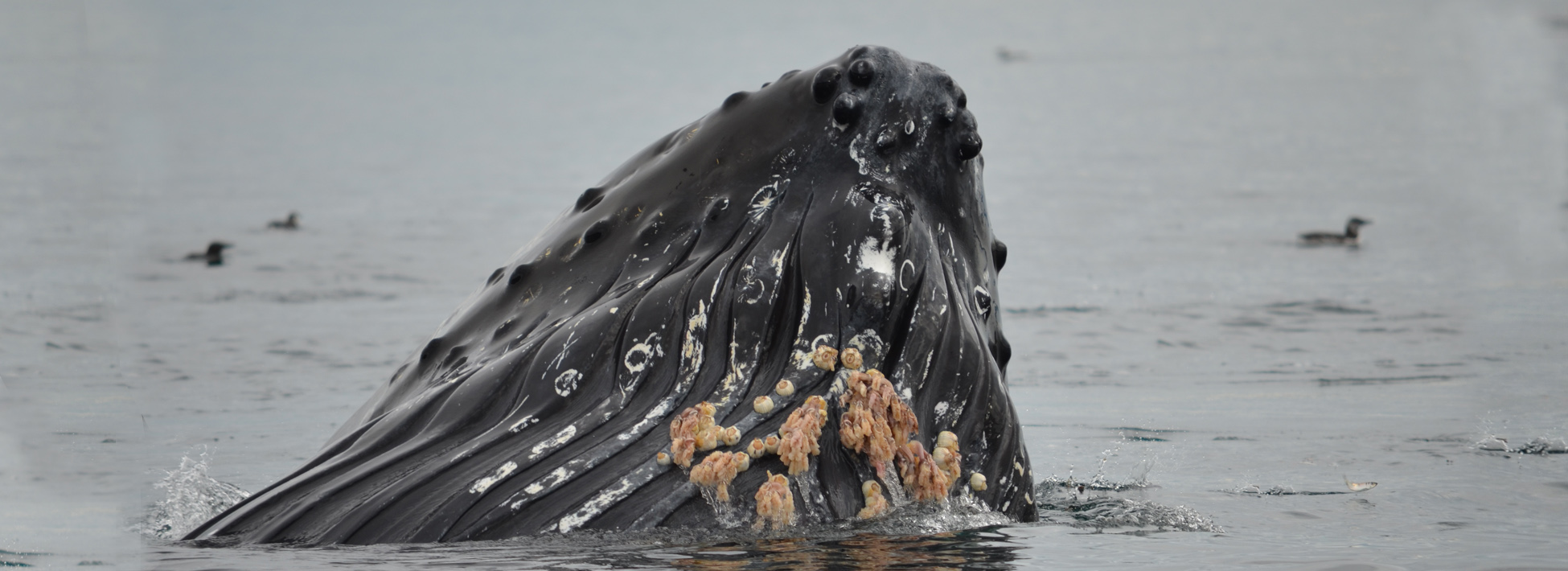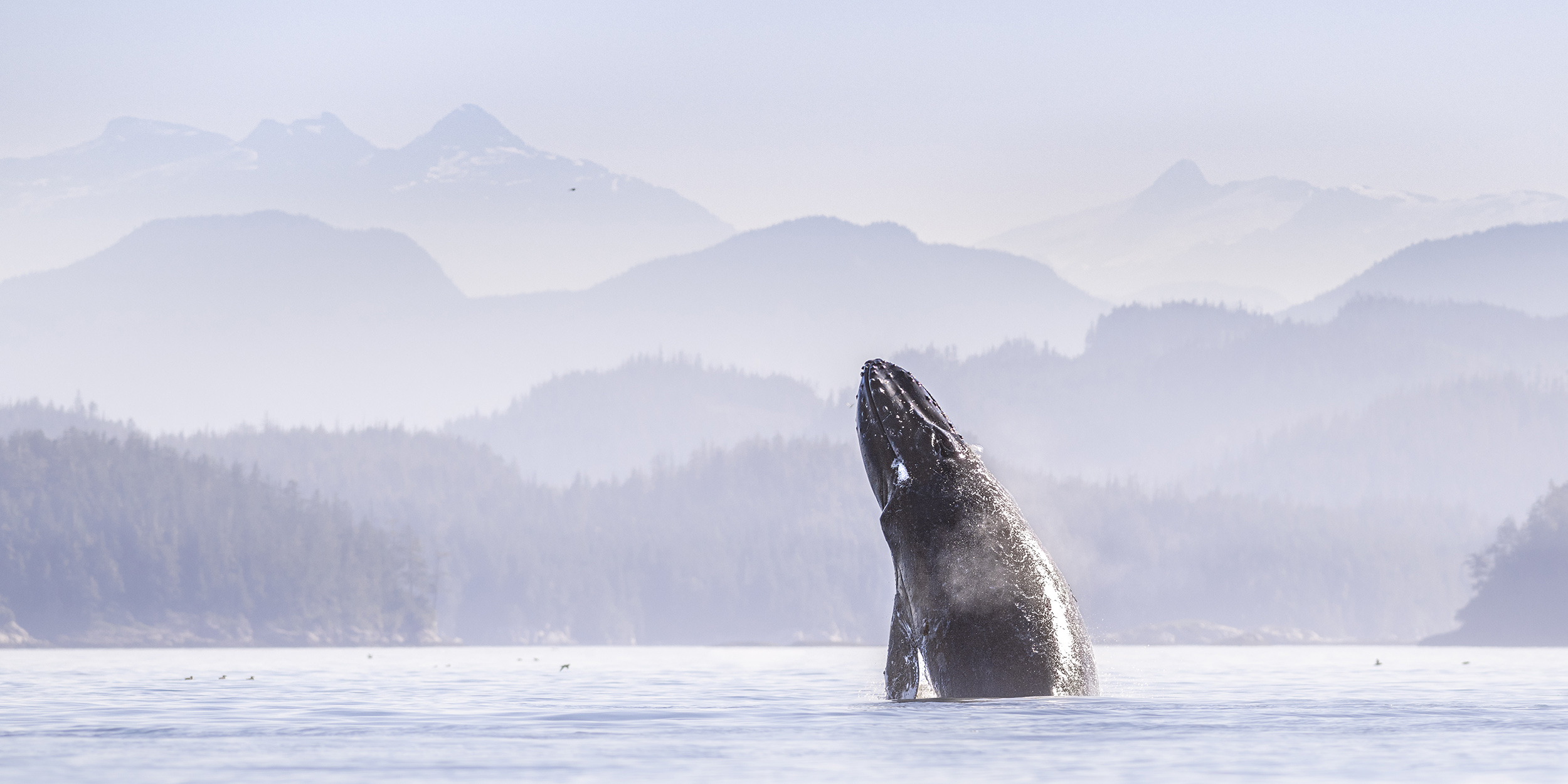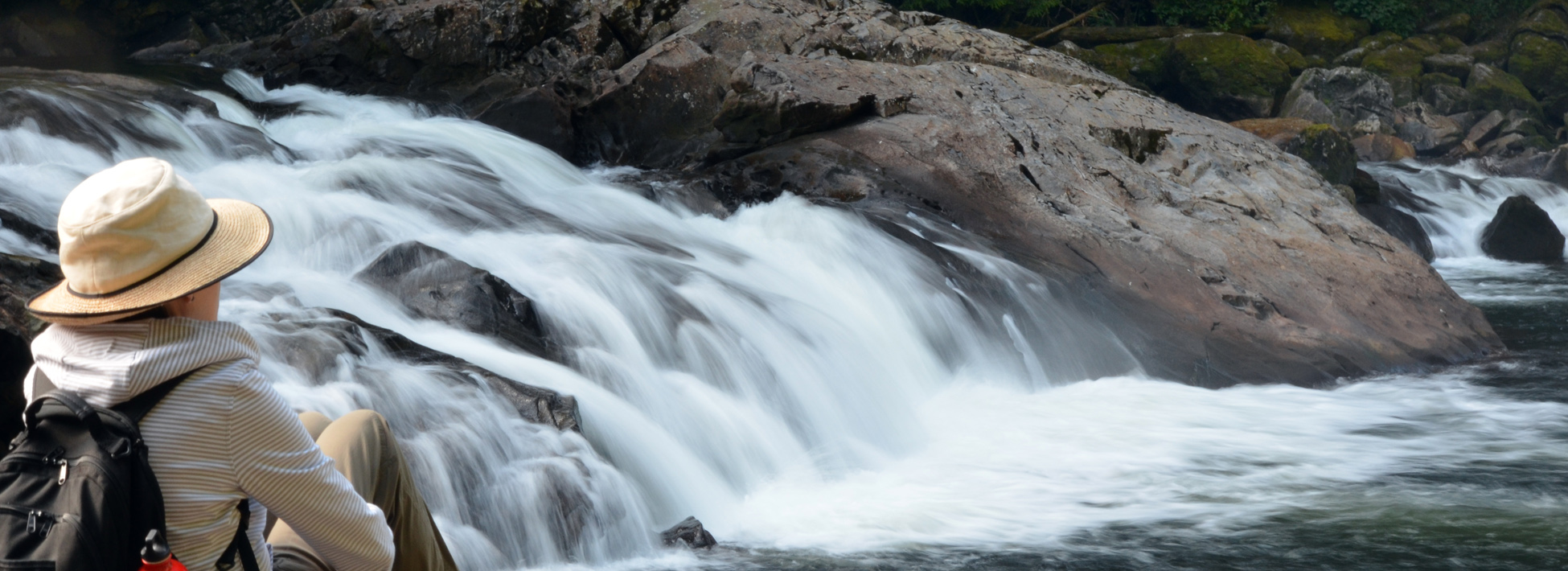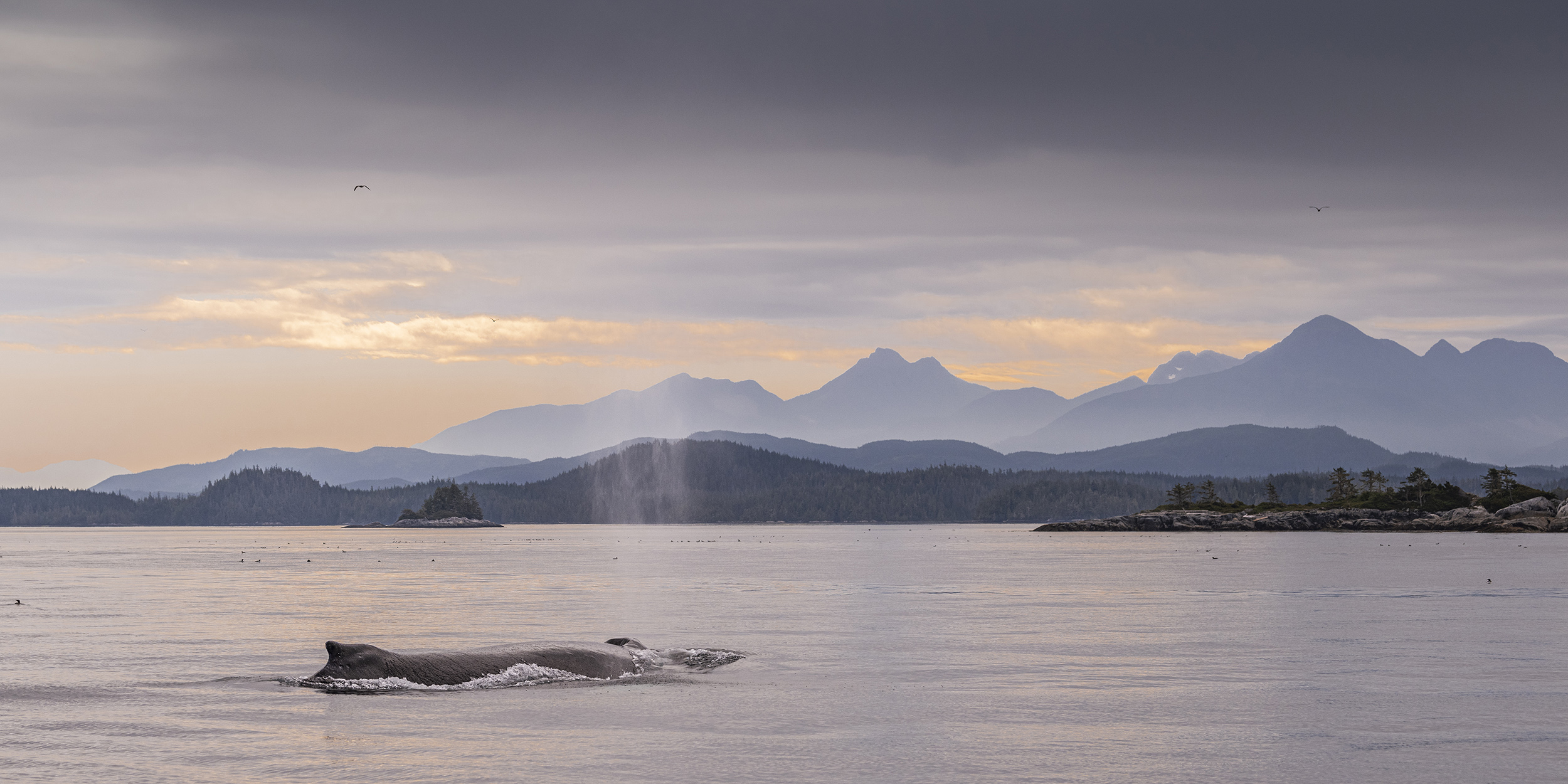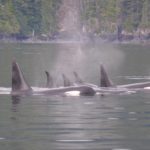These Orca are resting in the waters of Johnstone Strait. Whales are voluntary breathers, which means unlike us they have to think about every breathe that they take. When whales rest they shut down half of their brain and close the opposite eye. They reverse this process, so that both sides of their body is able to rest. This lets the animal rest, but also breathe and watch for danger.
Bald Eagles
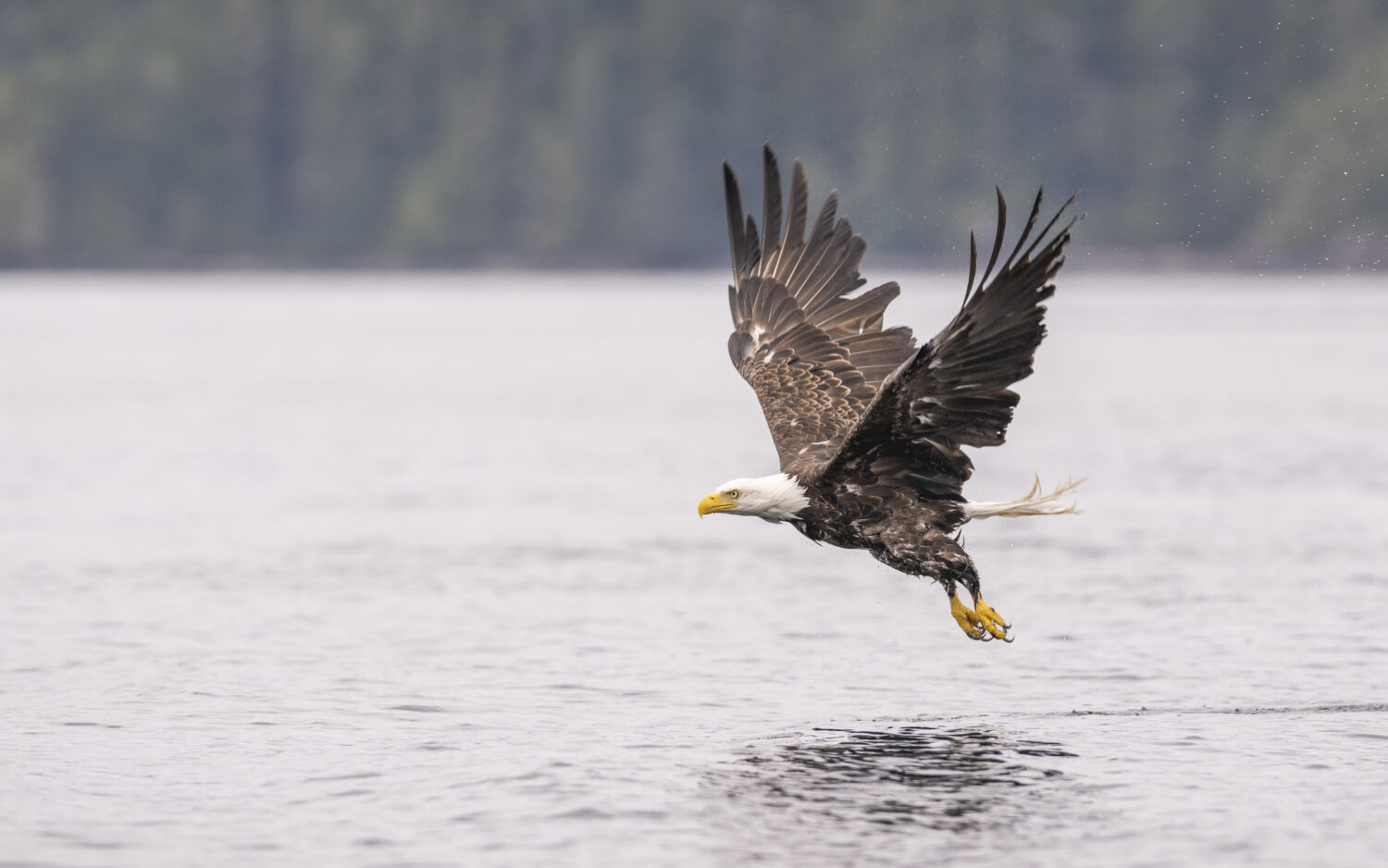
Bald Eagles are frequently sighted in our area. At times they can be seen in large numbers. This is usually where food supplies are high. For example this could be in areas with high concentrations of baitfish or along the rivers in the fall when the salmon are spawning. They are not migratory, but do move around with the food supply. As mentioned earlier when the salmon are spawning we often see many along the rivers, while there will be fewer along the coastline. With little need for camouflage their white head and tail feathers can be spotted easily. The female is slightly larger and her white head extends down a bit farther onto the body, but it is subtle. It takes these birds 4.5 – 5 years to acquire this unique plumage. As juveniles they are a brown colour. With exceptional eyesight and the ability to view 270 degrees they are understandably often seen in high perches and in trees near points and passageways.
Visit our Blog